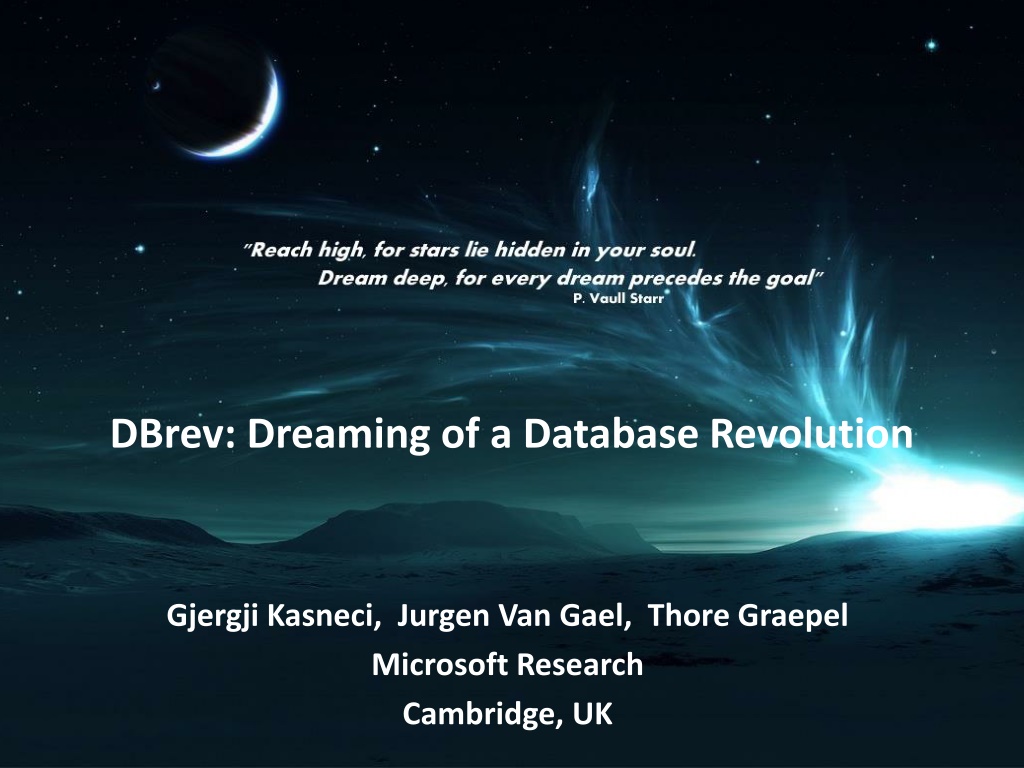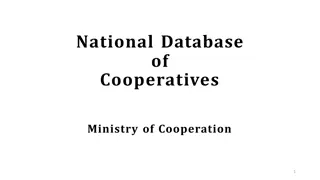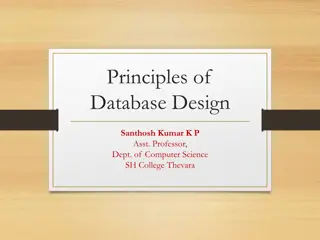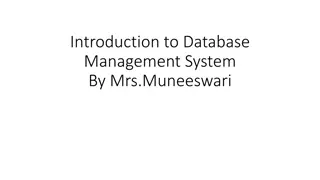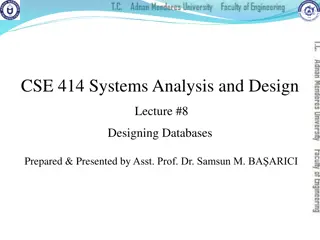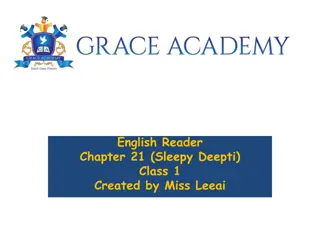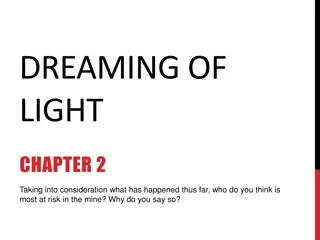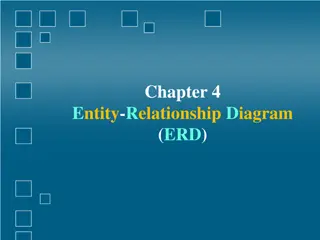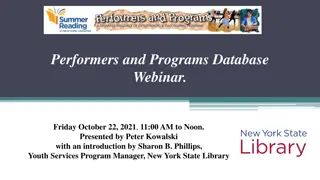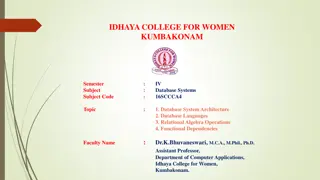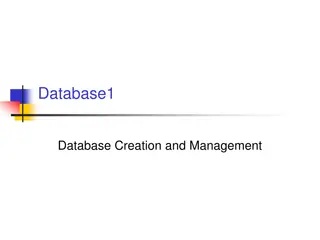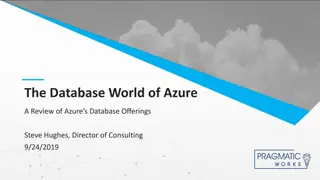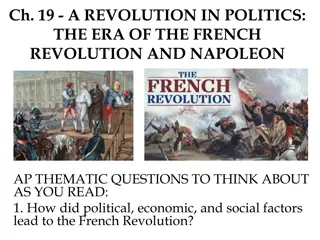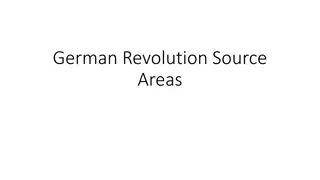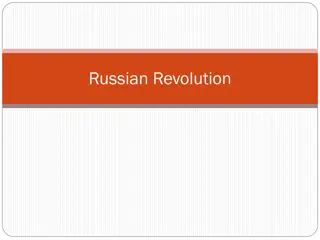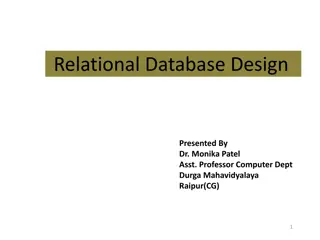DBrev: Dreaming of A Database Revolution
The DBrev project by Gjergji Kasneci, Jurgen Van Gael, and Thore Graepel from Microsoft Research Cambridge aims to address key issues in data management, query processing, information extraction, and integration. It explores managing anonymized data, uncertainty in applications, and context awareness. The project leverages large-scale graphical models and factor graphs for data provenance and integration, tackling ambiguity and consistency challenges. Explore how DBrev combines logical constraints and sources of evidence to revolutionize database systems.
Download Presentation

Please find below an Image/Link to download the presentation.
The content on the website is provided AS IS for your information and personal use only. It may not be sold, licensed, or shared on other websites without obtaining consent from the author.If you encounter any issues during the download, it is possible that the publisher has removed the file from their server.
You are allowed to download the files provided on this website for personal or commercial use, subject to the condition that they are used lawfully. All files are the property of their respective owners.
The content on the website is provided AS IS for your information and personal use only. It may not be sold, licensed, or shared on other websites without obtaining consent from the author.
E N D
Presentation Transcript
DBrev: Dreaming of a Database Revolution Gjergji Kasneci, Jurgen Van Gael, Thore Graepel Microsoft Research Cambridge, UK
Uncertainty in Applications Managing anonymized data (Approximate) Query Processing Managing sensor data Information extraction Information integration Intelligent data management with following requirements: Store, represent, retrieve data and confidence Assess accuracy Self diagnostic and calibration + DB & IR Statistical ML
Main Issues Context Awareness Retrieval & Discovery Provenance Ambiguity Consistency Outrageous: solve these problems simultaneously in integrated system DBrev
DBrev Exploits Large-Scale Graphical Model Combine logical constraints and sources of evidence about knowledge fragments into belief network, e.g.: Sample Belief Network for Aggregating User Feedback and Expertise on Knowledge Fragments, Kasneci et al.: WSDM 11
DBrev on Information Extraction and Integration Data Provenance Tracing derivation chain back to the sources Closely related to consistency and curation open problem in the presence of multiple sources (Dalvi, R , Suciu: CACM 09) Provenance through factor graphs in DBrev:
DBrev on Information Extraction and Integration Data Provenance Tracing derivation chain back to the sources Closely related to consistency and curation open problem in the presence of multiple sources (Dalvi, R , Suciu: CACM 09) Provenance through factor graphs in DBrev: <MichaelJackson, diedOn, 25-07-2009> <MichaelJackson, livesIn, Ireland> michaeljackson.com f1 f1 f2 michaeljackson- sightings.com wikipedia.org/wiki/Michael_Jackson
DBrev on Information Extraction and Integration Ambiguity & Context Awareness Are two recognized entities the same? Reasoning over contextual and background info, e.g. The fruit flies like a banana. Problem lies at the heart of AI. Ambiguity & Context in DBrev:
DBrev on Information Extraction and Integration Ambiguity & Context Awareness Are two recognized entities the same? Reasoning over contextual and background info, e.g. The fruit flies like a banana. Problem lies at the heart of AI. Ambiguity & Context in DBrev: Entity1 f sameAs f Ontological description/ Semantic features Statistical fingerprint derived from the Web Entity Entity2
DBrev on Information Extraction and Integration Consistency In DBs handled by universal constraints in FOL What about more expressive logical constraints? E.g., transitive dependencies between tuples can also support the lineage Consistency in DBrev: <A, R, B> ^ <B, R, C> ^ <R, type, Transitive> <A, R, C> Extracted Triple: ( x , r , y ) refersTo( x , A) ^ refersTo( y , C) ^ canBeDeduced(A, R, C) refersTo ( r , R)
DBrev on Information Extraction and Integration Consistency In DBs handled by universal constraints in FOL What about more expressive logical constraints? E.g., transitive dependencies between tuples can also support the lineage Consistency in DBrev: ^ ^ <A, R, B> ^ <B, R, C> ^ <R, type, Transitive> <A, R, C> Extracted Triple: ( x , r , y ) v refersTo( x , A) ^ refersTo( y , C) ^ canBeDeduced(A, R, C) refersTo ( r , R)
DBrev on Information Extraction and Integration Retrieval & Discovery Search and rank knowledge In probabilistic setting, ranking is the only meaningful search semantics (R , Dalvi, Suciu: VLDB 07, Weikum et al.: CACM 09). Retrieval & Discovery in DBrev: partnerOf locatedIn Microsoft $x US certifiedBy SPARQL / Conjunctive Datalog / NAGA
DBrev on Information Extraction and Integration Retrieval & Discovery Search and rank knowledge In probabilistic setting, ranking is the only meaningful search semantics (R , Dalvi, Suciu: VLDB 07, Weikum et al.: CACM 09). Approximate Matching Entity / relationship similarity Reasoning over relationship properties Reasoning with temporal / spatial constraints Retrieval & Discovery in DBrev: partnerOf locatedIn Microsoft $x US User Preference Information needs freshness, accuracy, popularity Interests context, background, current interest certifiedBy SPARQL / Conjunctive Datalog / NAGA
Summary DBrev builds on large-scale factor graph to simultaneously approach: Retrieval & Discovery provenance context ambiguity consistency An inspiration to combine + DB & IR Statistical ML for the challenges ahead.
